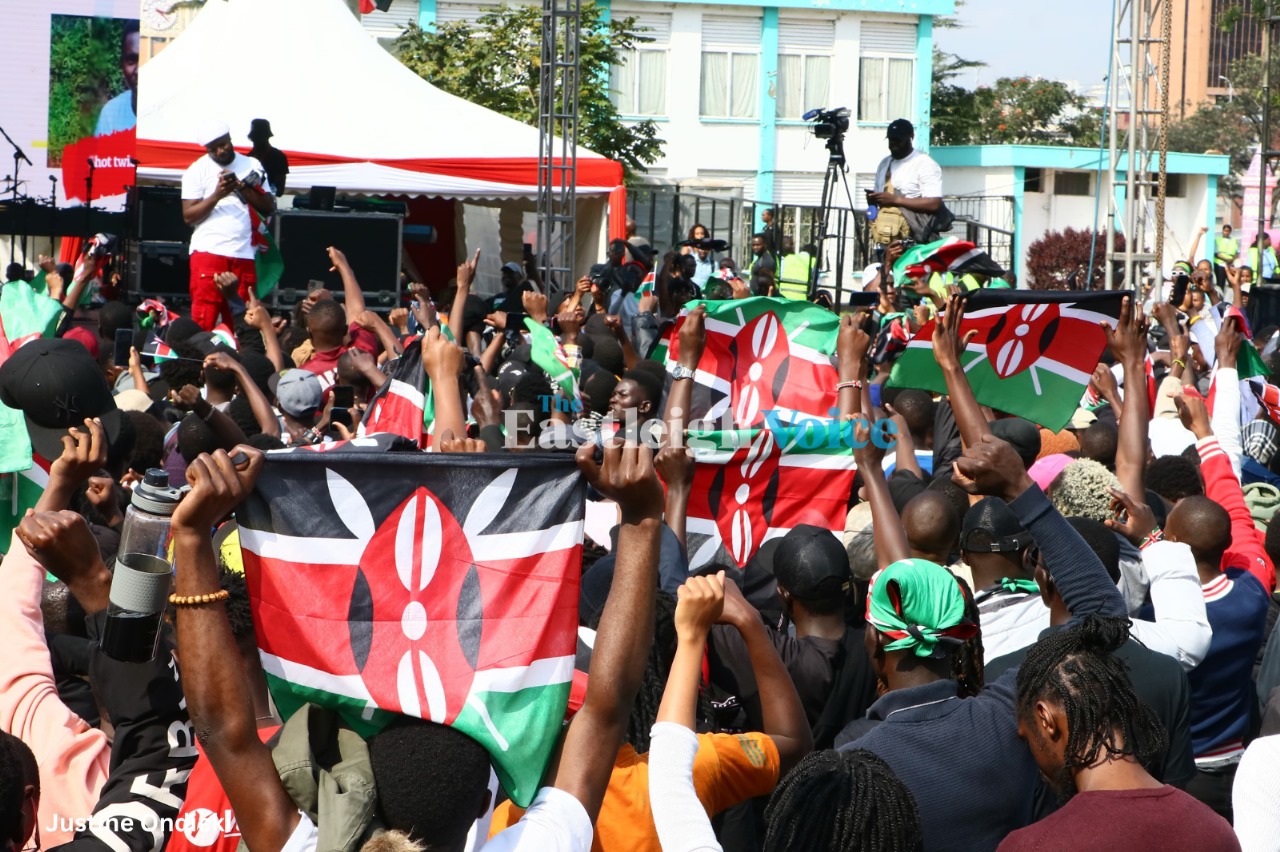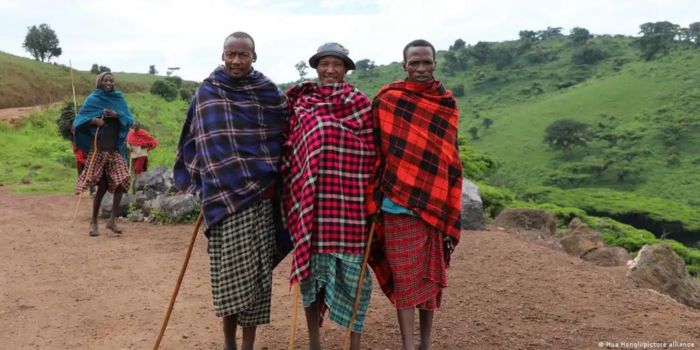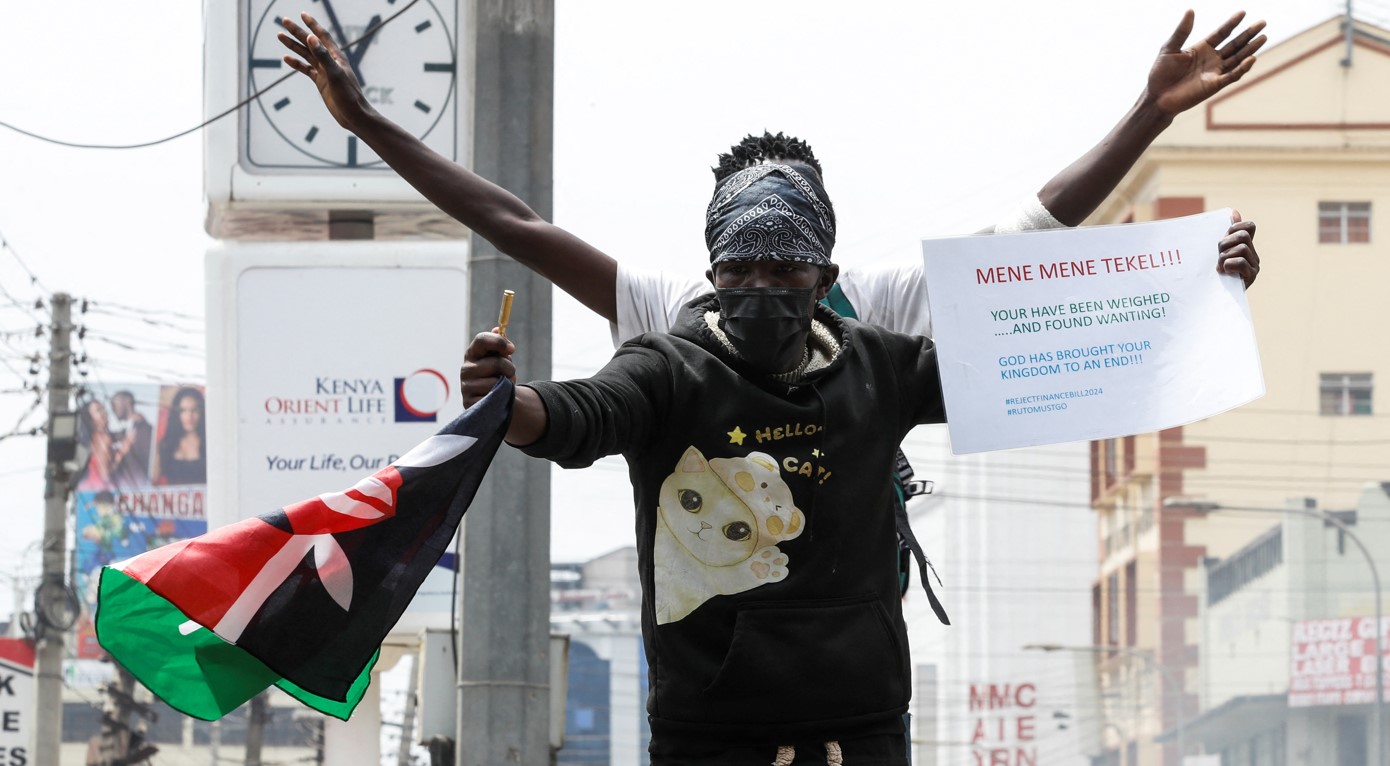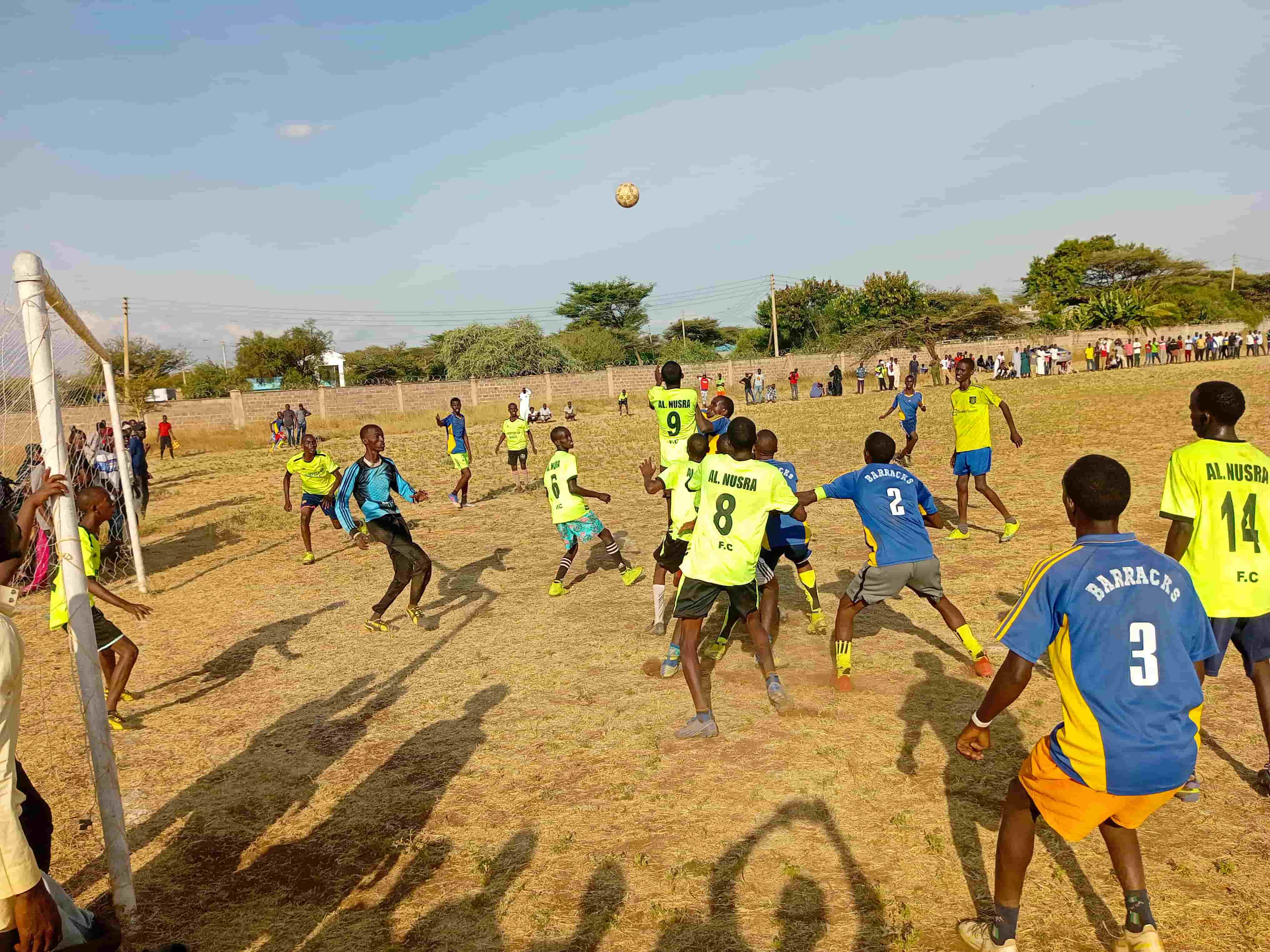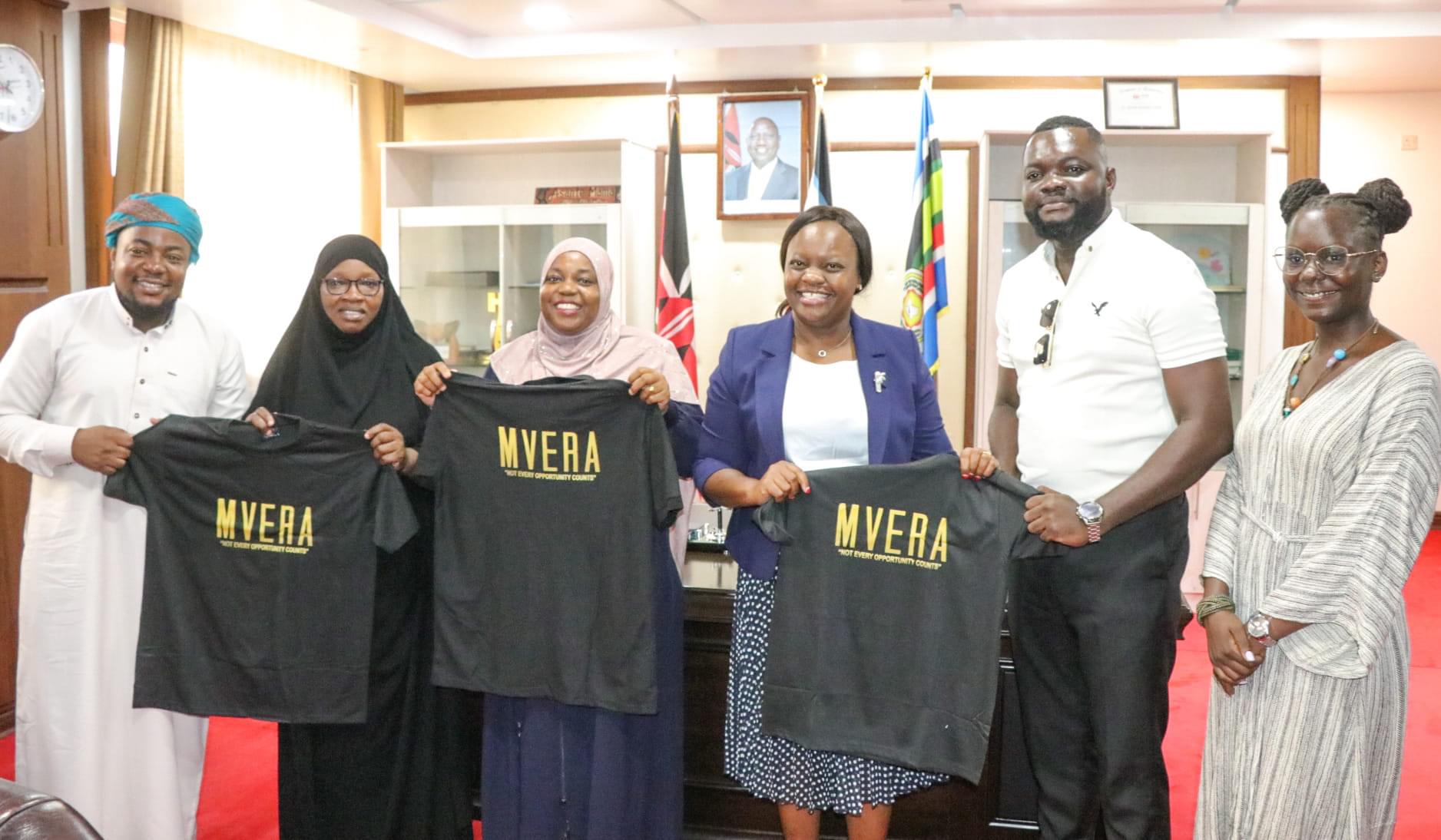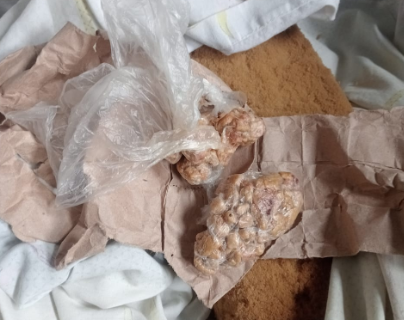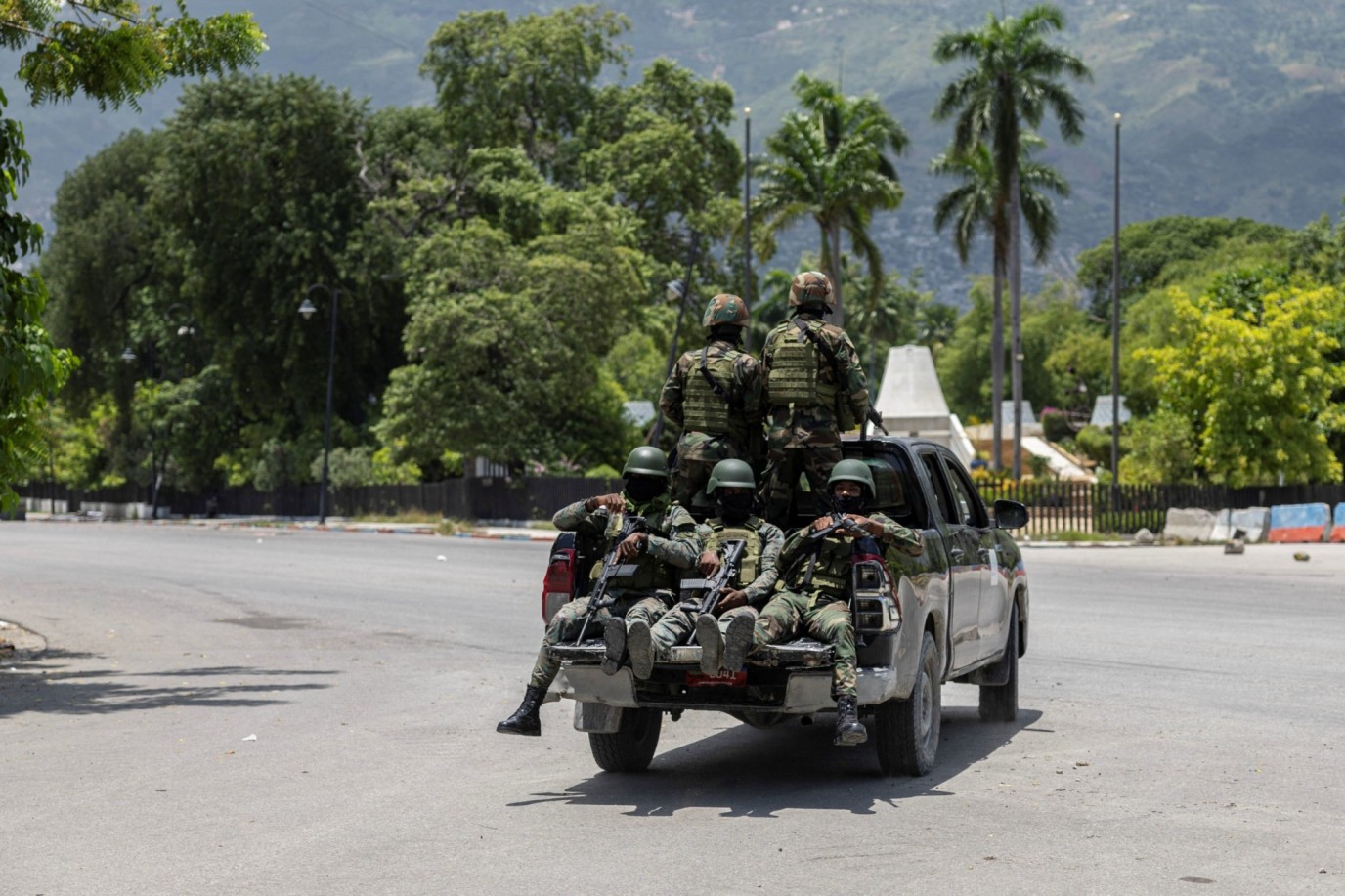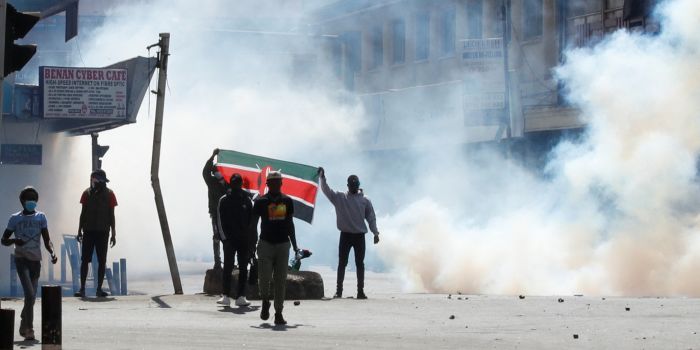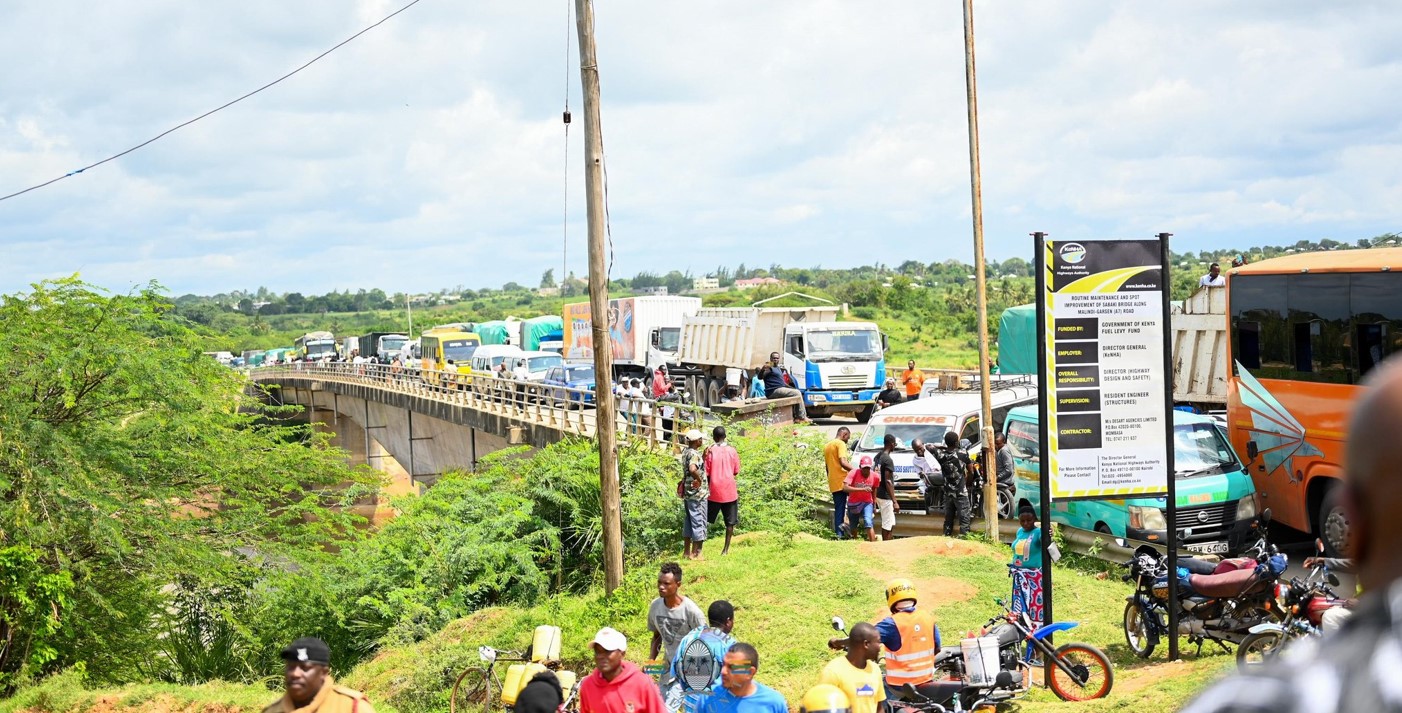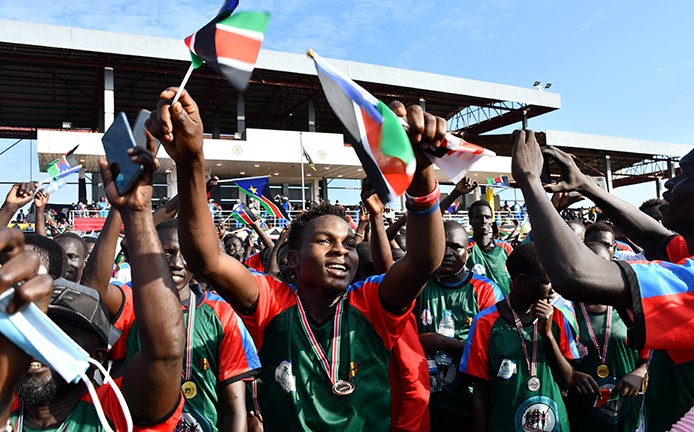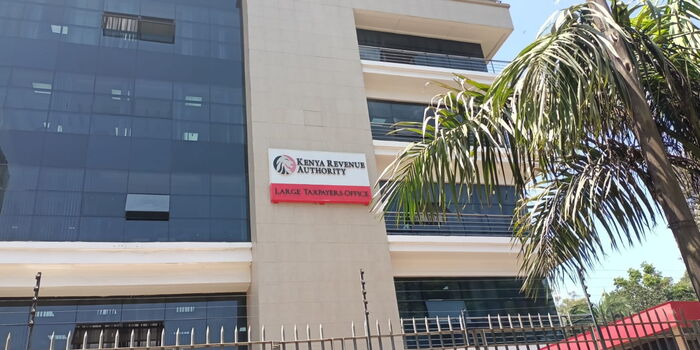Relief for 500 households in Isiolo as two boreholes are rehabilitated
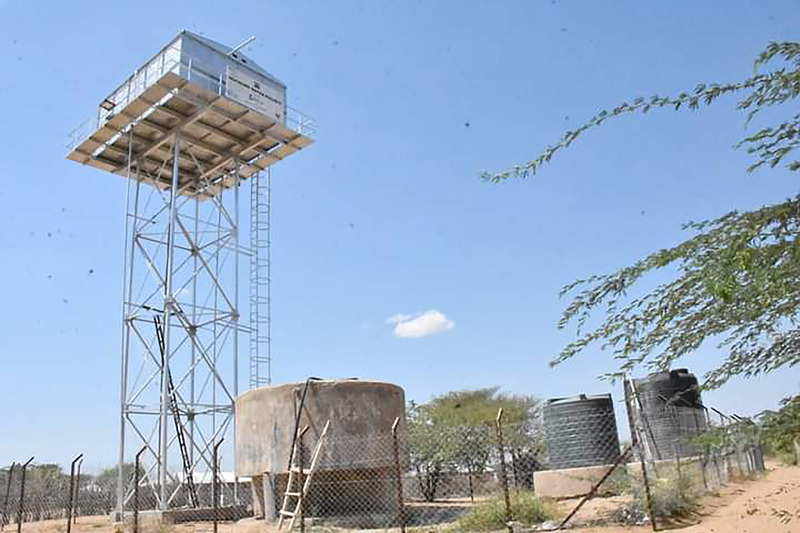
By Waweru Wairimu |
A storage tank has also been installed at the Muchuro dispensary and floodlights to enable the residents to fetch water even at night.
Safia Hassan, a resident of Muchuro in Garbatulla, Isiolo County, has in the last year had to contend with walking for about four kilometres in search of water, following the breakdown of a local borehole.
Required to fetch water for domestic use and also water the animals, she has been spending most of her daytime in pursuit of the precious but scarce commodity, making her unable to fully take care of the family responsibilities.
"My day's schedule is cut out-fetching water. I hardly get time to engage in an income-generating activity and my daughter (in Grade Six) is sometimes forced to skip school or leave early to help me with the house chores," she says, adding that she got water from a neighbouring village.
During the water escapades along the bushy and dusty stretch, she says, women and girls are vulnerable to attacks and sexual and Gender Based Violence while many of the girls are forced to drop out of school due to effects of climate change that have seen the region experience perennial drought.
Rukia Ibrahim's story is no different. "We have been forced to ration the commodity, exposing us to water-borne diseases due to compromised sanitation," she says, adding that taking a bath was no longer a necessity as the little water available was being prioritized for cooking.
Studies show girls and women spend 200 million hours daily fetching water, globally.
The struggle has come to an end following the rehabilitation of the local borehole and another in the Jillo Dima area which will collectively benefit more than 500 households.
A 40m by 20m fence has been erected to prevent vandalism at the Muchuro borehole with an elevated 50 cubic metres steel storage tank, livestock trough and a water kiosk at the local primary school.
A storage tank has also been installed at the Muchuro dispensary and floodlights to enable the residents to fetch water even at night.
"I am so happy that I will no longer walk for many kilometres in search of water. I will start a kitchen garden at my home, contributing to my family's food security," an elated Safia said.
Abdi Kiyuye, a resident, said a regular supply of water for domestic and livestock use will contribute to enhanced sanitation and improved health of the animals.
"The water will promote diversification of livelihoods which will contribute to increased income. The fence and floodlights will ensure the security of the infrastructure and keep wildlife away," he said.
The Jillo Dima borehole that was drilled by the Northern Water Trust Fund 15 years ago was not in use due to a non-functional genset and a dilapidated supply system.
Installation of a solar system, laying of pipes for the supply of water to the kiosks and a 50 cubic metre storage tank has already been installed.
Stressing the need for sustainable water management, County Water Executive Ali Wario Sarite said the projects will increase water supply and contribute to improved health.
"The water management committees have already been trained on governance and accountability and we expect them to keep up-to-date records, prudently manage their funds and maintain the resource on their own using the water charges," he said during the handover of the projects to the communities.
He was accompanied by Garbatulla Sub-County Administrator Idris Golicha.
The rehabilitation of the projects was done by the Catholic Relief Services through the Kenya Rapid + program in partnership with the county government.
Kenya Rapid + Water Sanitation and Hygiene (WASH) officer Allan Mutugi called for close monitoring of the projects by the respective community management committees for sustainability purposes.





